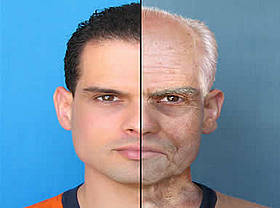California Labor Department statistics suggests that workplace retaliation claims are on the rise more than other employment related claims, such as discrimination and harassment and hostile work environment related lawsuits. This is not surprising as I believe that besides the common reasons for these violations, such as lack of knowledge of the law on the side of employers and managers, there is a deeper, fundamental cause of retaliation claims, rooted deeply in human nature. Most humans have a predisposition toward being at least somewhat vindictive. When someone intentionally hurts us, we have a natural desire to both defend ourselves and hurt the attacker back. Such dynamics are especially strong in an environment where people, besides dealing with each other, are faced with conscious or subconscious fear of losing their source of income and livelihood, such as workplace.
Thus, when an employee complains about the manager, whether it’s a justifiable grievance or not, the supervisory employee will feel both angry and threatened. Unless the manager is well educated in the workplace retaliation laws and can consciously resist targeting the complainant or unless the company has adequate mechanisms that address retaliation and protect the employee who complains and/or “blows the whistle,” some form of retaliation is almost certain to happen. That retaliation can be obvious and blunt, such as demoting, suspending or transferring an employee to a less desirable position or workplace, or it can be more subtle, such as creating a paper trail of made up bad performance reviews and picking on employee for every insignificant reason.
Regardless of the cause and the degree of retaliation, it almost never simply goes away. On the contrary, the employee who is being retaliated against will likely be subjected to a greater retaliation with time if he is not taking action, unless the issue is address with the human resources department or higher up in the company, or through legal representation.





 It is unclear what weight, if any, should be give to how long a condition lasts in determining its disabling effect as the relevant statute Cal. Gov. Code section 12926.1(c) is noticeable silent on that issue. Thus, one way to interpret the law is to treat the duration of the condition as only mildly relevant in simply showing whether how serious the condition is, as one might argue that part of being “serious” is having a lasting effect on a personal physical or mental health.
It is unclear what weight, if any, should be give to how long a condition lasts in determining its disabling effect as the relevant statute Cal. Gov. Code section 12926.1(c) is noticeable silent on that issue. Thus, one way to interpret the law is to treat the duration of the condition as only mildly relevant in simply showing whether how serious the condition is, as one might argue that part of being “serious” is having a lasting effect on a personal physical or mental health.